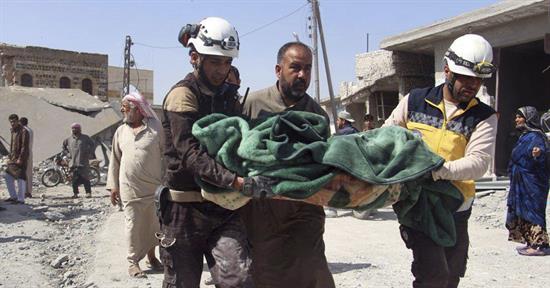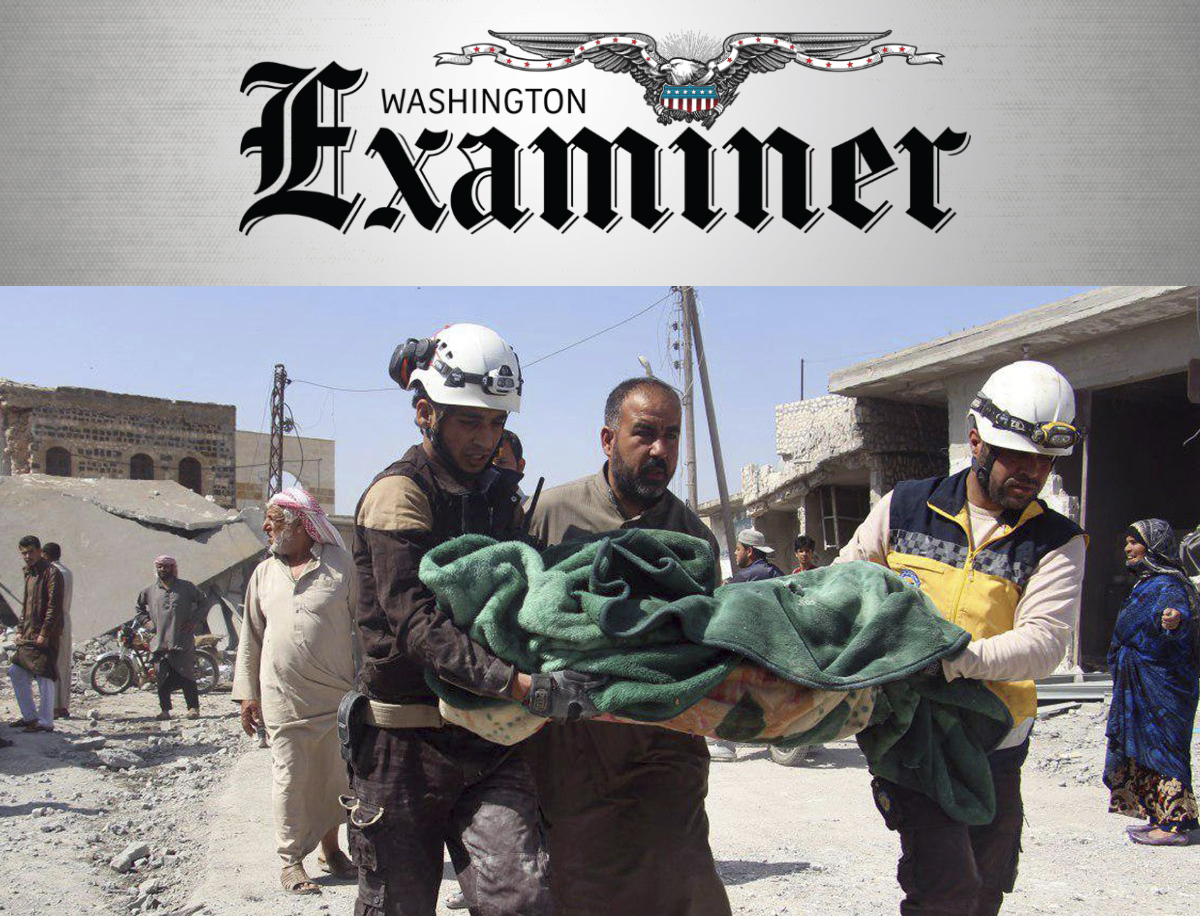Rep. Hill Op-ed: A Sidelined America Limits Already Difficult Options in Syria
Washington,
May 16, 2019
WASHINGTON, D.C. — This Week, the Washington Examiner published Congressman French Hill’s (AR-02) op-ed highlighting the difficult, yet necessary steps the United States must take to end the ongoing civil war in Syria.
A Sidelined America Limits Already Difficult Options in Syria Washington Examiner By: Congressman French Hill May 14, 2019 Last Friday, while President Trump and Russian President Putin spent an hour on the phone discussing North Korea aggressions and the conflict in Venezuela, the brutal Syrian dictator, Bashar al-Assad, and his Russian allies were barrel bombing civilians in the Syrian province of Idlib. A starker example of an adrift U.S. policy on the conflict in Syria would be hard to find. Eight years ago, the people of Syria started to protest the Assad regime, like many other Middle Eastern people living under the yoke of authoritarian government. At the time, few could have predicted that eight years later in Syria more than half a million men, women, and children would be dead, millions more displaced, and the entire region feeling like a lit fuse ready to explode into further conflict. Shortly after coming to Congress in 2015, I read Black Flags: The Rise of ISIS by Joby Warrick. In the book, I learned that a young Syrian-American from Hot Springs, Arkansas (just an hour outside of my congressional district), named Mouaz Moustafa, had been leading a Syrian pro-democracy group in Washington, D.C. Mouaz’s love of Arkansas and America, along with his passionate advocacy for the innocent people of Syria, is inspiring and infectious. Subsequently, I met Mouaz, studied his efforts, and I learned more and more about the horrific events happening in Syria. He led me through the “Caesar” file photos in a special exhibit at the Holocaust Museum and, earlier this year, introduced me to Omar Alshogre, who was arrested as a teenager and survived the torture, starvation, and other brutalities in Assad’s prisons for more than three years. Seeing those photos and hearing Omar’s story were powerful experiences. What is happening in Syrian is a modern-day holocaust, and our obligation to end Assad’s reign of terror is something that all Americans must confront. Last Congress, President Trump signed into law the Iraq and Syria Genocide Relief and Accountability Act. This law provides emergency relief to victims of genocide, crimes against humanity, and war crimes in Iraq and Syria, and holds accountable the perpetrators of these crimes. Despite that legislative success, the House and Senate have not yet been able to pass the Caesar Syria Civilian Protection Act. That bill is the most powerful piece of proposed legislation related to the Syrian crisis because it increases our powers to hold Assad’s supporters accountable for these atrocities. I commend President Trump for the action he took in 2017 against Shayrat Airbase after the Assad regime gassed its own people. Further, the small U.S. military presence, along with our allies in Syria, carries significant weight in keeping Iran, Russia, and ISIS at bay. In my view, President Trump reversing his decision to pull all U.S. troops out of Syria, and instead stationing small forces in the northeast and the south at the al-Tanf military base is the right call. While this is a key decision, we must step up with our leadership. Syria was a major foreign policy blunder in the Obama Administration. In 2012, President Obama drew a “red line” on chemical weapon attacks by the Assad regime, but then famously failed to enforce it; strong and forceful leadership by the United States was absent. For the Trump Administration, defeating ISIS and curtailing Iran’s aggression have been key priorities over the last two years. However, we cannot maintain these security priorities without engaged leadership in helping resolve the Syrian crisis. All available options for the United States are difficult at best, like opening a dialogue with armed actors in the northeast, working with Turkey at a troubled time in their NATO relationship, or engaging with the world’s most nefarious actors like Iran, Russia, and the Assad regime. Following recent airstrikes by Russian and pro-Assad forces in the Idlib province in the northeast, the Small Group on Syria, consisting of representatives from Egypt, France, Germany, Jordan, Saudi Arabia, the United Kingdom, and the United States, met in Geneva with United Nations Special Envoy to Syria, Geir Pedersen. The goal of the meeting was to revive the Geneva process in search for a long-term peace deal. Mr. Pedersen is set to meet with representatives from Turkey, Russia, and Iran later this month. The time for full American diplomatic engagement is now. Repeating the events of the past, we risk continuing to allow the lit fuse to burn, risking further escalation and destabilization. We could help save tens of thousands in Idlib, enhance our coalition to fight an ISIS resurgence, and craft a balanced diplomatic solution that could lead to Syrian elections in 2021. A push for diplomatic assurances on Iran leaving Syria would play a major role in preventing a hot war between Israel and Iran. America must make Syria a priority—and not only to right out our wrongs of failing to lead when Assad crossed President Obama’s “red line” in 2013. It is in our national interest to reduce regional tensions in a post-ISIS Syria. This result would help end the ongoing humanitarian nightmare that is preventing millions of Syrians from returning to their families and homes. We must tap our diplomatic, military, and financial power to engage with allies and adversaries alike in Syria. There will be no successfully negotiated settlement without the United States at the table. America on the sidelines would result in more misery for the Syrian people and more instability for the region. Our allies in Israel, Jordan, and Egypt would be worse off, and America would need to prepare for the consequences of continued and further destabilization in the region, including increased risks to our homeland. The time for American leadership is now. |



